
ANIMAL COGNITION
Scope & Guideline
Bridging Disciplines: Discovering the Depths of Animal Cognition
Introduction
Aims and Scopes
- Animal Learning and Memory:
Research focuses on how animals learn from their experiences and how memory influences behavior. Studies investigate various learning paradigms such as operant conditioning, spatial memory, and problem-solving tasks. - Social Cognition and Communication:
Exploration of how animals communicate and understand social cues. This includes studies on gestural communication, vocalizations, and the cognitive mechanisms underlying social interactions among different species. - Comparative Cognition:
Investigating cognitive abilities across species to identify evolutionary patterns and similarities. This includes comparisons of problem-solving skills, decision-making processes, and sensory modalities. - Emotional and Social Intelligence:
Focus on understanding emotions in animals, including empathy, social bonding, and the impact of social environments on cognitive processes. This area examines how emotional states influence behavior and cognition. - Perception and Sensory Processing:
Studies on how animals perceive their environment using various sensory modalities, including visual, auditory, and olfactory cues. Research often explores the cognitive implications of sensory processing in ecological contexts. - Cognition and Welfare:
Research linking cognitive abilities to animal welfare, investigating how cognitive enrichment and environmental factors affect the well-being of animals in both wild and captive settings.
Trending and Emerging
- Interdisciplinary Approaches:
There is a growing trend towards integrating methodologies from fields such as neuroscience, psychology, and machine learning. These interdisciplinary approaches enhance the understanding of cognitive processes and provide more robust experimental designs. - Human-Animal Interaction Studies:
Research focusing on the dynamics of human-animal interactions is on the rise, reflecting increasing interest in how these interactions influence cognition and behavior in companion animals and other species. - Cognitive Bias and Affective States:
Emerging studies are examining the relationship between cognitive biases and emotional states in animals, exploring how affective states can influence decision-making and cognitive performance. - Citizen Science and Public Engagement:
The use of citizen science methodologies is becoming more prevalent, allowing for large-scale data collection and increased public involvement in animal cognition research. - Neurocognitive Mechanisms:
Research is increasingly focusing on the neural underpinnings of cognition in animals, linking behavioral observations with brain function and structure to better understand cognitive processes.
Declining or Waning
- Tool Use and Manipulation:
Research on tool use in various species has decreased, possibly due to the already extensive investigations into this area. Fewer studies are emerging that explore new facets of tool use, indicating a potential plateau in this field. - Cognitive Mapping and Navigation:
Although important, studies specifically dedicated to cognitive mapping and navigation strategies in animals have become less prominent. This may reflect a broader focus on other cognitive domains that are perceived as more novel or impactful. - Play Behavior and Learning:
While still relevant, the exploration of play behavior as a learning mechanism has seen a decline. Research interest appears to be shifting towards more direct measures of cognitive performance rather than indirect indicators like play. - Animal Consciousness and Sentience:
Discussions and studies surrounding animal consciousness and sentience, while still critical, have diminished in frequency. This could reflect a move towards empirical studies rather than philosophical debates.
Similar Journals
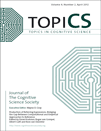
Topics in Cognitive Science
Advancing the Frontiers of Human CognitionTopics in Cognitive Science, published by WILEY, is a premier interdisciplinary journal that advances the understanding of the cognitive processes that underpin human behavior and interaction with technology. With a commendable impact factor and a strong focus on research from 2009 to 2024, this journal garners significant attention in various subfields, as evidenced by its Q1 ranking in Experimental and Cognitive Psychology and Linguistics and Language, alongside a Q2 position in Artificial Intelligence, Cognitive Neuroscience, and Human-Computer Interaction. Researchers and professionals will find invaluable insights into the latest experimental findings, theoretical discussions, and practical applications that bridge cognitive neuroscience, psychology, and computer science. Topics in Cognitive Science is especially pivotal for those aiming to delve deeper into cognitive mechanisms and their implications within our increasingly digital world, making it an essential resource for students and scholars alike.
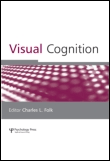
VISUAL COGNITION
Fostering Innovation in Cognitive NeuroscienceVISUAL COGNITION, published by Routledge Journals, Taylor & Francis Ltd, is a leading academic journal dedicated to the nuanced understanding of visual processing and cognition. Since its inception in 1994, the journal has become a pivotal resource for researchers and practitioners in fields including Cognitive Neuroscience and Psychology, having achieved a distinguished Q1 ranking in Arts and Humanities and impressive standings among its peers in experimental and cognitive psychology. With an impact factor reflecting its scholarly significance, VISUAL COGNITION serves as a forum for high-quality research articles that shed light on the cognitive aspects of visual perception. Although it operates under a subscription model, the journal remains committed to disseminating knowledge that inspires both established and emerging scholars alike. For those interested in the latest advancements in visual cognition, this journal promises a wealth of insights and rigorous scholarly dialogue.
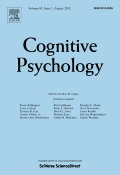
COGNITIVE PSYCHOLOGY
Pioneering Research in Cognitive PsychologyCOGNITIVE PSYCHOLOGY is a premier academic journal published by Academic Press Inc. Elsevier Science, specializing in the dynamic and evolving field of cognitive psychology. With a significant history spanning from 1970 to 2024, this journal has established itself as a critical resource for researchers and professionals alike, boasting a distinguished ranking in the Q1 category across multiple disciplines, including Experimental and Cognitive Psychology, Neuropsychology, and Artificial Intelligence. Its impact factor, reflective of its influence and reputation within the academic community, positions COGNITIVE PSYCHOLOGY as an essential platform for disseminating cutting-edge research and theoretical advancements. Although it is not open access, subscribers gain exclusive insights into the latest findings that drive the field forward. The journal's commitment to fostering innovative research makes it an indispensable tool for those dedicated to understanding the complexities of human cognition.
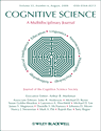
COGNITIVE SCIENCE
Innovating Insights in Cognitive ScienceCOGNITIVE SCIENCE, published by WILEY, is a leading academic journal that delves into the complexities of human cognition through an interdisciplinary lens. With an ISSN of 0364-0213 and an E-ISSN of 1551-6709, this journal has made significant strides in the field since its inception in 1977, ample coverage through to 2024, and a commendable Q1 and Q2 categorization in Experimental and Cognitive Psychology and Cognitive Neuroscience as of 2023. The journal is positioned at the intersection of various disciplines, ranking #65 out of 165 in Experimental and Cognitive Psychology and #58 out of 115 in Cognitive Neuroscience, highlighting its relevance and contribution to advancing knowledge in these areas. Although it does not offer open access, COGNITIVE SCIENCE remains an essential resource for researchers, professionals, and students seeking to explore groundbreaking research and theoretical insights within the vast domain of cognitive science.
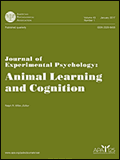
JOURNAL OF EXPERIMENTAL PSYCHOLOGY-ANIMAL LEARNING AND COGNITION
Exploring the Depths of Animal CognitionJOURNAL OF EXPERIMENTAL PSYCHOLOGY-ANIMAL LEARNING AND COGNITION, published by the American Psychological Association, stands as a pivotal resource in the fields of animal learning and cognitive psychology. With an ISSN of 2329-8456 and an E-ISSN of 2329-8464, this journal has established its significance from its inception in 2014, demonstrating a robust commitment to advancing research through 2024 and beyond. The journal's prominence is reflected in its 2023 rankings, placing it in the Q2 quartile for both Ecology, Evolution, Behavior and Systematics and Experimental and Cognitive Psychology, which positions it among the leading publications in its domains. Researchers and professionals engaged in the intricate study of animal behavior, cognition, and their underlying psychological mechanisms will find this journal invaluable. Although it does not currently offer open access, the quality and rigor of the published research make it a key reference for advancing knowledge and understanding in psychology and beyond.

LEARNING & BEHAVIOR
Unraveling the Complexities of Learning ProcessesLEARNING & BEHAVIOR is a distinguished academic journal published by SPRINGER that serves as a critical platform for the dissemination of research in the fields of behavioral neuroscience and cognitive psychology. With an ISSN of 1543-4494 and an E-ISSN of 1543-4508, this journal publishes high-quality, peer-reviewed articles that explore the complexities of learning processes and their behavioral implications. Despite its current Q4 status in Behavioral Neuroscience and Q3 in both Cognitive Neuroscience and Experimental and Cognitive Psychology, LEARNING & BEHAVIOR remains a valuable resource for researchers seeking to enhance their understanding of these dynamic fields. The journal has a converged publication timeline from 2003 to 2024, ensuring that it captures emerging trends and innovative methodologies. With robust accessibility options for a diverse readership, the journal fosters a comprehensive academic environment, inviting submissions that contribute to theoretical advancements and practical applications in understanding behavior. Authors and readers are encouraged to leverage this journal to engage with cutting-edge research that drives the behavioral sciences forward.

Journal of Cognitive Science
Unraveling the Mysteries of the MindThe Journal of Cognitive Science, with ISSN 1598-2327, is a distinguished publication from SEOUL NATL UNIV, INST COGNITIVE SCIENCE, focusing on the multidisciplinary field of cognitive science. Established in 2016, this journal aims to advance knowledge in various domains, including Artificial Intelligence, Cognitive Neuroscience, and Experimental Psychology, while also delving into Linguistics and Language. Although currently categorized in Q4 for several subjects in the 2023 rankings, it presents an invaluable platform for innovative research and scholarly discourse, providing insights that connect cognitive processes with practical applications, thus fostering cross-disciplinary collaboration. Located in South Korea, the journal adheres to rigorous academic standards, inviting submissions that contribute significantly to understanding cognition in a digital age. While it does not offer Open Access, readers can access articles through university libraries and academic databases, engaging with the latest findings and theories that shape the future of cognitive science.
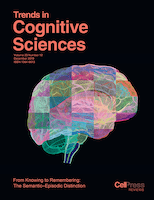
TRENDS IN COGNITIVE SCIENCES
Exploring the Frontiers of Cognitive ResearchTRENDS IN COGNITIVE SCIENCES, published by CELL PRESS, stands as a premier platform for the dissemination of high-quality research in cognitive neuroscience, experimental psychology, and neuropsychology. With an impressive impact factor and consistently placed in the Q1 category across multiple dimensions of cognitive research, this journal not only ranks in the top tier of its fields—holding the 1st position in both Cognitive Neuroscience and Neuropsychology but also boasts an exceptional percentile ranking of 99. As it converges from 1997 to 2024, it reflects the evolving landscape of cognitive sciences, making it a vital resource for researchers, professionals, and students seeking to stay updated on influential trends and groundbreaking studies. Though not an open-access journal, TRENDS IN COGNITIVE SCIENCES offers readers access to a wealth of information that shapes our understanding of complex cognitive processes and behaviors.

BEHAVIORAL AND BRAIN SCIENCES
Connecting Minds: Where Neuroscience Meets PsychologyBehavioral and Brain Sciences, published by Cambridge University Press, is a pivotal journal focusing on the interdisciplinary fields of Behavioral Neuroscience, Neuropsychology, and Physiological Psychology. With a history dating back to 1978 and ongoing through 2024, this journal serves as a vital platform for researchers, professionals, and students seeking to advance their understanding of brain-behavior relationships. Despite its current Q3 classification in various categories as of 2023, Behavioral and Brain Sciences is recognized for its insightful articles that foster discussions among professionals in the field. While it operates on a subscription model, the journal ensures broad access through individual and institutional subscriptions. Researchers will find this journal not only valuable for publishing their work but also for accessing a diverse range of scholarly articles that address contemporary issues in neuroscience and psychology, thereby enhancing the academic discourse within these evolving fields.

Attention Perception & Psychophysics
Innovating Research in Psychophysics and AttentionAttention Perception & Psychophysics is an esteemed academic journal published by Springer, specializing in the fields of experimental and cognitive psychology, linguistics and language, as well as sensory systems. With an impressive impact factor reflected in its classification as Q2 in Experimental and Cognitive Psychology and Q1 in Linguistics and Language for 2023, the journal promotes cutting-edge research and theoretical insights into how perception, attention, and psychophysical processes shape human cognition. Its accessibility through diverse open access options ensures that pioneering research is available to a global audience, fostering collaborative advancement in the cognitive sciences. As a vital resource for researchers, professionals, and students, Attention Perception & Psychophysics serves as a significant platform for disseminating innovative findings and engaging with contemporary debates within the dynamic landscape of psychology and related disciplines.